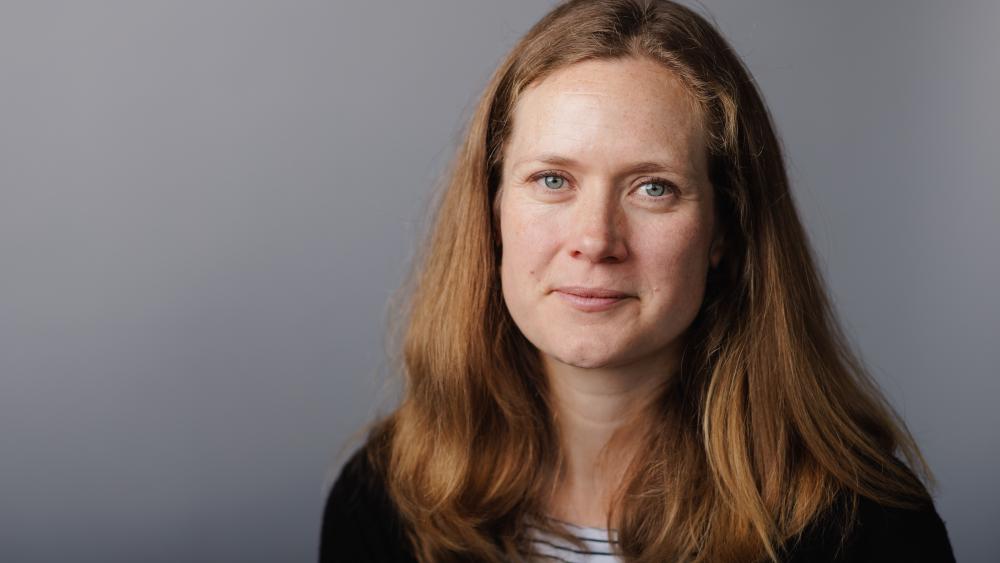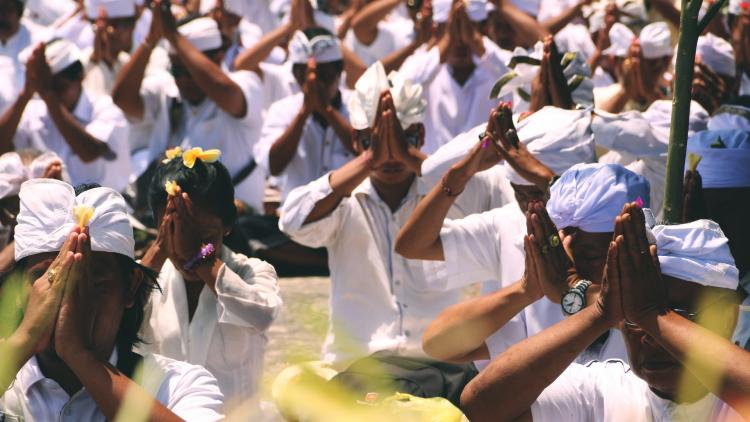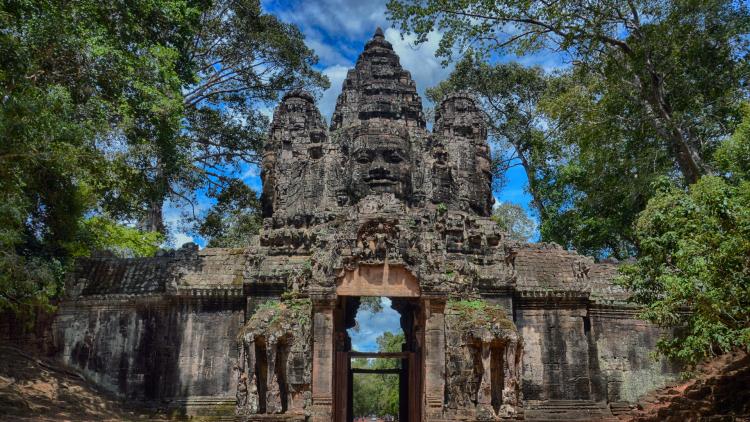Dr Eleanor Newbigin

Key information

- Roles
- Department of History Senior Lecturer in the History of Modern South Asia Member Academic staff
- Qualifications
- BA, MPhil, PhD (Cantab)
- Building
- Russell Square: College Buildings
- Office
- 307
- Email address
- en2@soas.ac.uk
- Telephone number
- 020 7898 4625
Biography
Dr Eleanor Newbigin is a historian of imperialism and decolonisation in twentieth-century South Asia. Her work develops nuanced, critical understandings of the end of formal colonialism in South Asia through rigorous archival research.
She is also interested in exploring how creative practices and participatory methodologies enable reflection on, and engagement with, some of the legacies of colonialism that cannot be addressed through archival work alone.
Based on her doctoral research, her book The Hindu Family and the Emergence of Modern India: Law, Citizenship and Community (Cambridge: Cambridge University Press, 2013) examined the relationship between political economy and religious-based personal law through a study of the campaign to reform and modernise Hindu family law in the mid-twentieth century. Using feminist and gender studies approaches, her research demonstrated how the introduction and funding of representative government in late colonial British India both shaped and was shaped by ideas about family, household, gender, and race. She traced the economic and administrative incentives behind these legal changes, showing that while codification significantly altered colonial hierarchies of gender and caste, it did not erase them. Instead, these hierarchies were reworked to create new forms of patriarchy and religious majoritarianism in the postcolonial state. An interview discussing this argument can be read here.
Her later work continues to combine these two interests: the structures of political economy and state policy, and the histories of family and intimate life, including how reflection on the past shapes contemporary identities and emotions.
She has also written about the history of economic thought in early twentieth-century India and its influence on ideas of society, citizenship, and welfare. Her research examines how Indian nationalists contributed to emerging global practices of measuring wealth and poverty, while also showing how colonialism, unequal access to education, and limited political representation shaped the field of economics and financial expertise in this period—producing powerful legacies that continue to influence economic scholarship today.
Dr Newbigin’s current research focuses on the British impact of the 1947 Partition. She explores how the Partition is being discussed and memorialised among diaspora South Asians and in British public debate today. She also seeks to uncover how the Partition affected different sections of society in terms of family experiences, building a more nuanced understanding of white colonial society at the time. In addition, she investigates how the colonial administration’s management of British population movements to the UK informed state policies relating to the arrival of South Asian migrants in the 1950s and 1960s.
Alongside archival research, Dr Newbigin has developed more practice-based approaches to engaging with imperialism and its legacies. In 2019, she led a playwright-in-residence project with Tamasha Theatre Company, working with SOAS students to reflect on the complexities of learning about the imperial past at an institution founded specifically to support colonial governance. This resulted in five audio dramas, recorded with student support at SOAS. Students wrote about the experience of working with the playwrights and participated as panel members at public listening events held across the UK.
With funding from the Worldmaking Beyond SOAS initiative, she partnered with Applied Stories to pilot New Histories, a participatory workshop format enabling communities to respond to local statues that commemorate Britain’s imperial past.
In 2023, Dr Newbigin collaborated with Sarah Tucker of the Access Participation and Student Success Team and student volunteers to create a variety of free learning resources designed to help teachers of secondary-age students address the legacies of colonialism in more creative and engaging ways. A discussion of this work and its impact is available on the Higher Purpose podcast.
PhD Supervision
| Name | Title |
|---|---|
| Mayukh Chakrabarty | Cashing Lives: A History of Indian Life Insurance (1800 - 2000) |
| Mr Sarbajit Mitra | Cultures of Consumption: Popular Responses to Intoxicants in Colonial Bengal |
| Kshitij Moon | Being Men in the Shadow of Caste: A Social and Gender History of Masculinities in 20th-Century Maharashtra |
| Ms Rajosmita Roy | Women’s Periodicals between Colonialism versus Nationalism in British India: 'Reading-Writing Women' and the Creation of Bengal's 'Publics' |
| Morag Flora Wright | The Family, the Law and the Empire in the Construction of South Asian Indentured Labour |
Publications
Contact Eleanor
- Telephone



